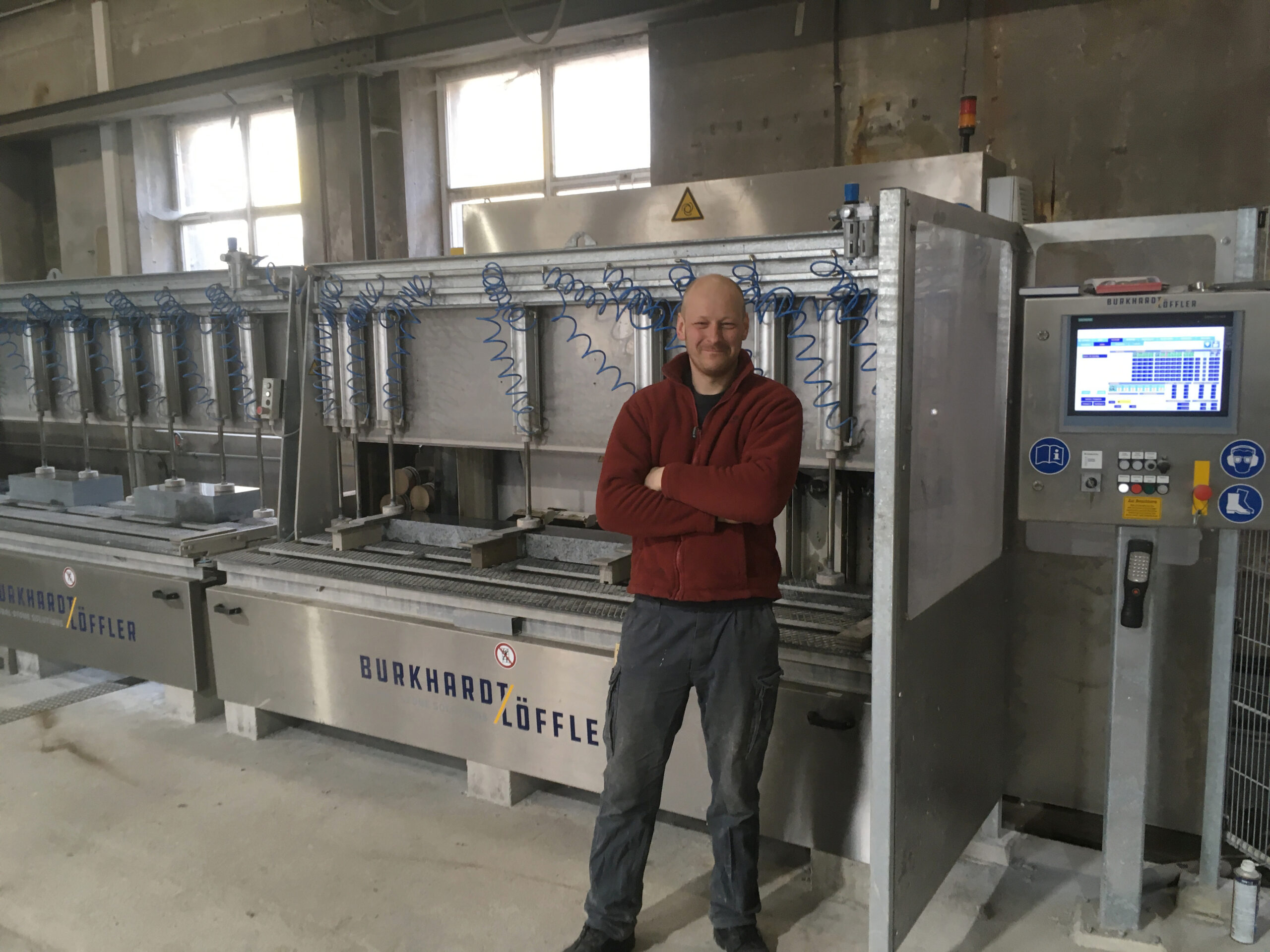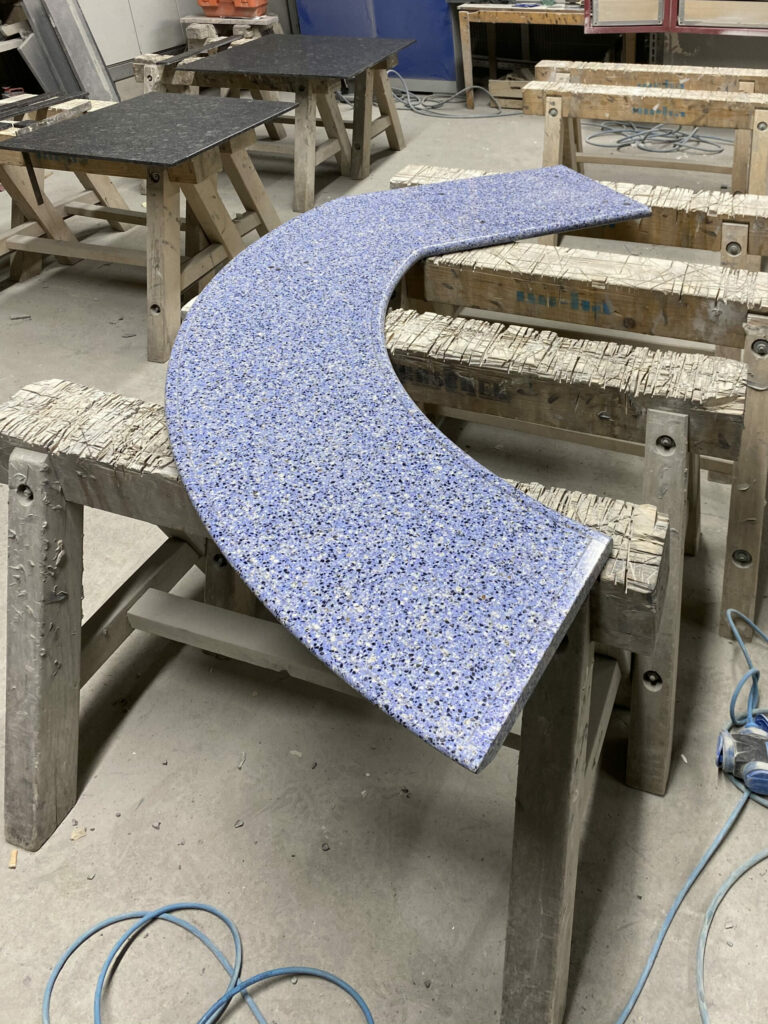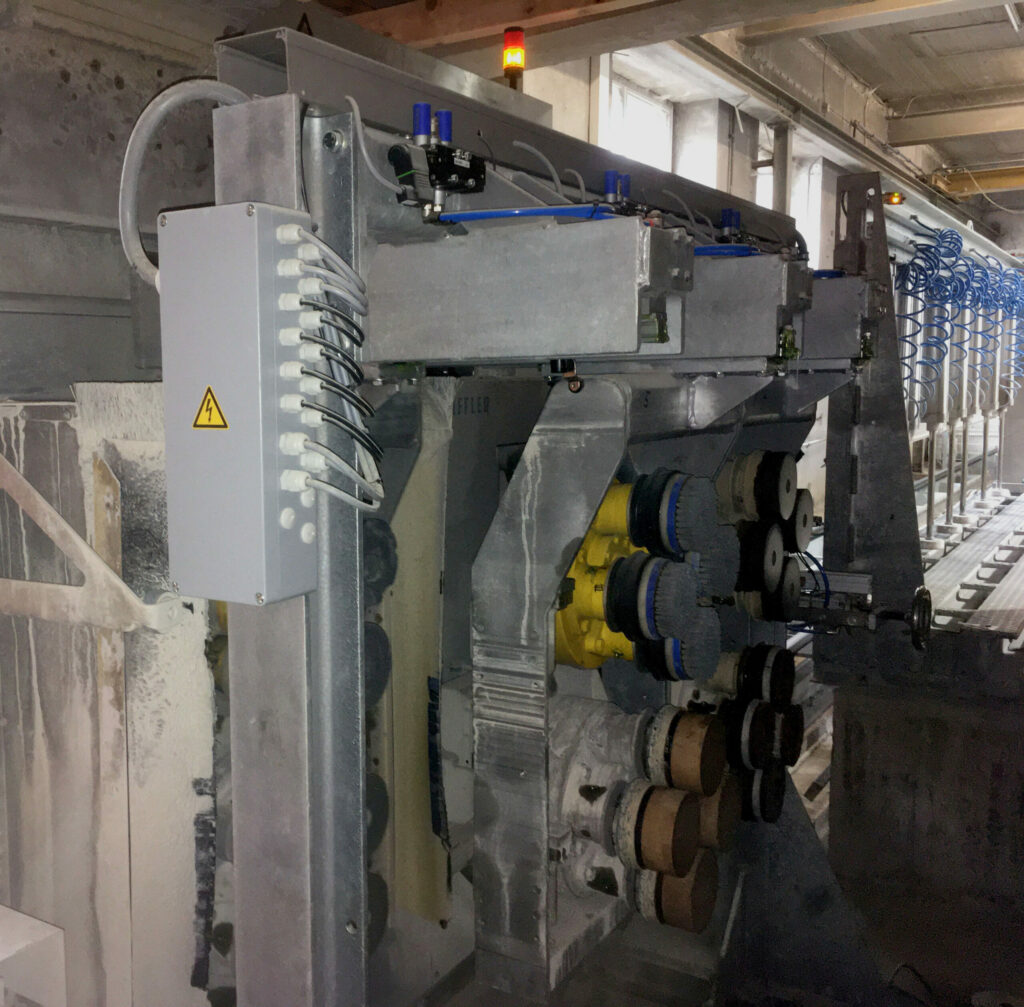COMPANY GRANITWERKE KARL SCHÖRNER
In-house production pays off

COMPANY GRANITWERKE KARL SCHÖRNER
In-house production pays off
Granitwerk Schörner e.K.
Globalization be damned: in-house production is alive and well and is even increasing slightly. The Karl Schörner granite plant in Weißenstadt is one of many examples of how to defy deadline and price pressure. Christian Schörner explains the importance of investing in production.
CSA 567
In-house production pays off
Globalization be damned: in-house production is alive and well and is even increasing slightly. The Karl Schörner granite factory in Weißenstadt is one of many examples of how to defy deadline and price pressure. Christian Schörner explains the importance of investing in production.
Who do you supply?
The production processes were optimized when my father Karl Schörner took over the company in 1976 and the machinery was constantly expanded in order to be able to reliably produce high-quality products economically. This and the distribution by means of our own vehicles made it possible to build up an extensive customer base, even in more distant regions. Our main customers still include stonemasons and natural stone processing companies. Of course, we also provide advice and assistance to private customers.
How has the market developed for you?
Factors such as imported goods or the general decline in demand for gravestones often give us pause for thought. Fortunately, natural stone is a versatile material and so there are still opportunities to switch to other markets.
What proportion of your business is made up of regional stone types?
In recent years, the proportion of Fichtelgebirge granite has risen to around 20%, while the proportion of European stone types is around 40%.
How do you see the future for gravestones and materials from regional production?
The demand for regional German products has already increased noticeably in recent years. Especially in the home and garden, people are increasingly looking for local materials. Local stone types are also gaining popularity in the gravestone sector. With a simple design and processing methods that suit the stone, an attractive product can be produced with little effort, which customers often prefer to the standard designs.
How many employees do you have?
Five people are currently employed at the factory. We also have freelancers working for us in the field.
Do you work from slabs and blocks?
The most common and domestic natural stones are sawn from blocks, which means we are relatively flexible, especially when it comes to oversizes. Rarely requested stones are processed from tranches.
Why did you choose the Burkhardt-Löffler machines?
Before purchasing the KSA 542, we had been using the Hensel 548 edge sanding machine for almost 20 years and I was very satisfied with it. The new machine is the successor model, and Burkhardt-Löffler was also the only company that was able to realize my ideas and requirements for effective edge processing in the range of three to 40 cm thick workpieces with automatic chamfering. In the event of a malfunction, having a manufacturer nearby is also a great advantage in terms of getting production up and running again quickly. What advantage does a German-speaking supplier have for you? A German-speaking supplier naturally makes communication much easier, especially when it comes to service or complaints. It is noticeable that German companies are generally much more reliable, although there are of course exceptions
Quick Information
Technology in detail
Production at Schörner includes these machines: Carl Meyer diamond block circular saw, Burkhardt-Löffler CSA 567 rotary head saw, Hensel 561 automatic surface sanding machine and Burkhardt-Löffler KSA 542 WZW automatic edge sanding machine.
Richard Watzke M.A.
is a trained stone sculptor and art historian. As a freelance editor, he publishes articles on natural stone extraction, technology and application. He also specializes in photography, marketing and public relations work for stonemasons, associations and institutions.
Magazin Naturstein 07 | 2021
Images: Granitwerk Schörner e.K.





